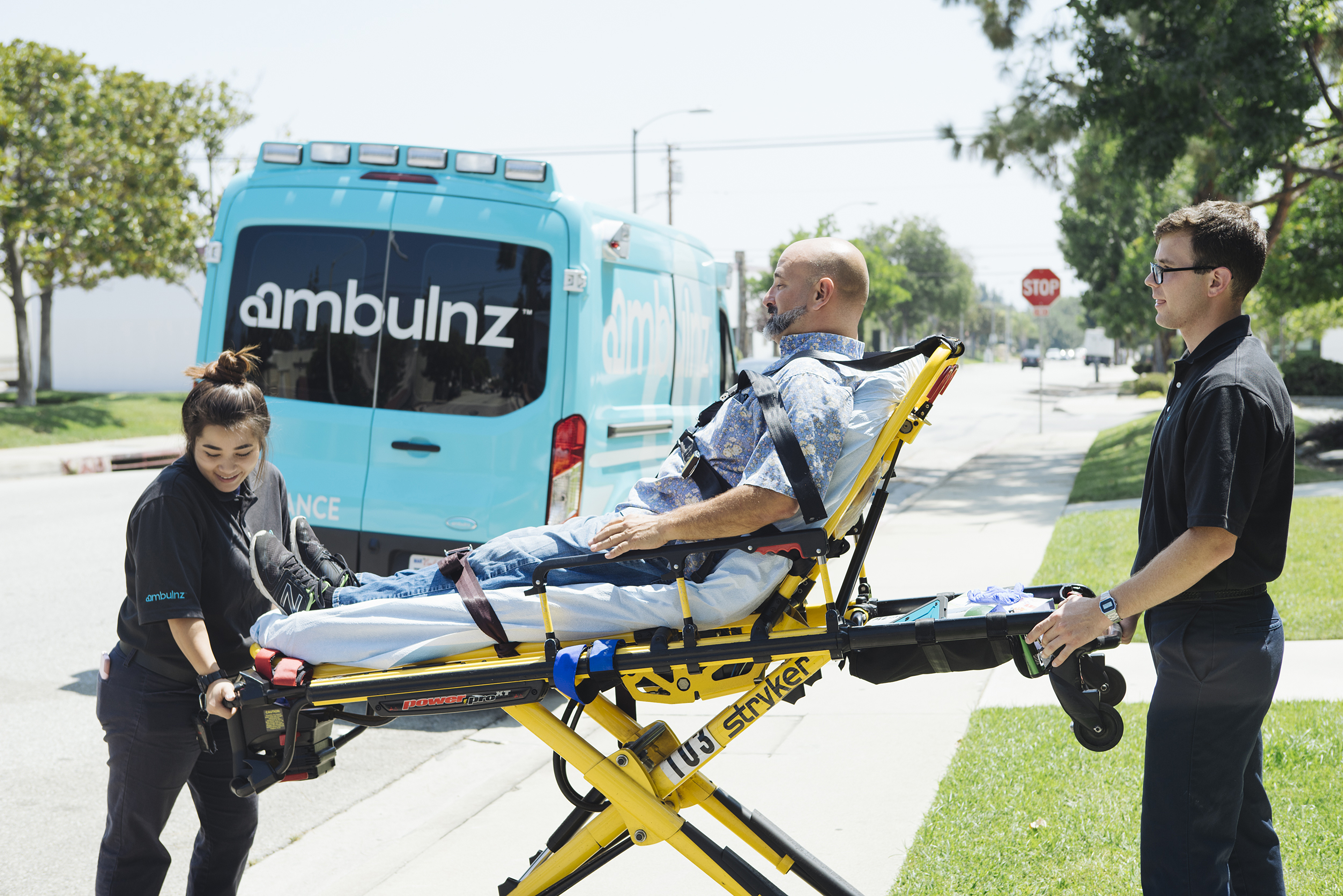As the first medical responders to emergency situations, EMTs are highly trained clinicians that play an essential role in the patient care process. Between evaluating patients, rapidly determining treatment plans and providing life support, their daily tasks are small feat. In fact, because an EMT’s professionalism is often so palpable, it’s easy to forget that behind the uniform and medical jargon is a human being with bills to pay and a boss to impress. Even those as heroic as EMTs are not exempt from the challenges that life brings us.
Anthony Capone is hyper-aware of this notion, and as the President & CTO of medical transport company Ambulnz, his perpetual goal is to ensure employees are happy with their jobs. And when thousands of your employees are EMTs, workplace satisfaction can be a matter of life or death.
Patient care is directly impacted by an EMT’s happiness
While Ambulnz medical transportation is hyper-focused on non-life threatening pickups and drop-offs, such as dialysis and outpatient care, the company remains hyper-aware of the fact that regardless of patient needs, each ride has the opportunity to become emergent, and its EMTs not only have to be on their A-game in these rare situations, but the job itself is also equally as stressful and time sensitive as that of an emergent medical transport.
To aid in the success of the business and individual Ambulnz EMTs, Ambulnz uses disruptive technology that tracks scheduled ambulance rides on an app so loved ones and caregivers can locate patients, making for a more timely and efficient drop-off and pick-up process, but despite this cutting-edge technology, it is impossible for any medical transport company to keep track of EMTs 100 percent of the time. Consequently, having full trust in employees becomes an imperative element of the business at Ambulnz.
According to Capone, companies need to make sure each employee is incentivized to do his or her best every single time they come into contact with a client. In his experience, happy EMTs have faster call response times and are eager to provide best-of-class service to patients. A positive-minded EMT can also make the difference between a good and a bad relationship with hospital staff. Upon arrival to the hospital, EMTs regularly interact with nurses, doctors and other healthcare professionals to handle important tasks, such as administering vitals, signing off on patient necessities and filling out forms. An EMT that arrives eager and ready to work is more likely to ensure that these processes will run smoothly. When EMTs get the paperwork done correctly, for example, nurses feel less stress and can care for their patients better.
At the same time, patients may be entering an ambulance nervous or anxious for what’s to come. In these situations, it is up to the EMT on the clock to create a positive headspace for the patient and ease them into whatever their care regimen is at the hospital. Understanding, compassion and patience go a very long way when it comes to medical emergencies, and it is up to employers to do their best to instill these qualities in employees. Of course, no matter how satisfied you are in the workplace, personal issues can always get in the way of your happiness, but executives can always take steps to ensure that resentment or anger toward management does not consume any part of an EMT’s day.
Ambulnz creates a positive company culture to ensure EMT satisfaction
What can companies do to keep employee satisfaction and, in turn, motivation high? According to Anthony Capone, it starts with a good salary. Ambulnz prides itself on a business model that offers EMTs upward mobility across the organization. Through different incentive programs, employees have the potential to earn as much as double the national industry average, which is currently approximately $30,000. An EMT needs to know that they can take care of their families and pay their bills.
In the coming new year, Ambulnz will offer company stock to employees, designed to allow a share in the company relative to the number of transports facilitated. Anthony Capone believes that this system will make employees feel they are truly part of the Ambulnz team and inspire them to do their best on the job.
A strong company culture is also key to maintaining workplace happiness. Ambulnz abides by an internal system of 1. Positivity, a belief in the power of technology to enable positive transformation of the modern healthcare industry for both patients and their caregivers, 2. Optimism, a group of young, connected, forward thinking individuals with a can-do attitude, 3. Safety at the highest standard and 4. Compliance with all medical laws and regulations that apply to the transportation industry.



